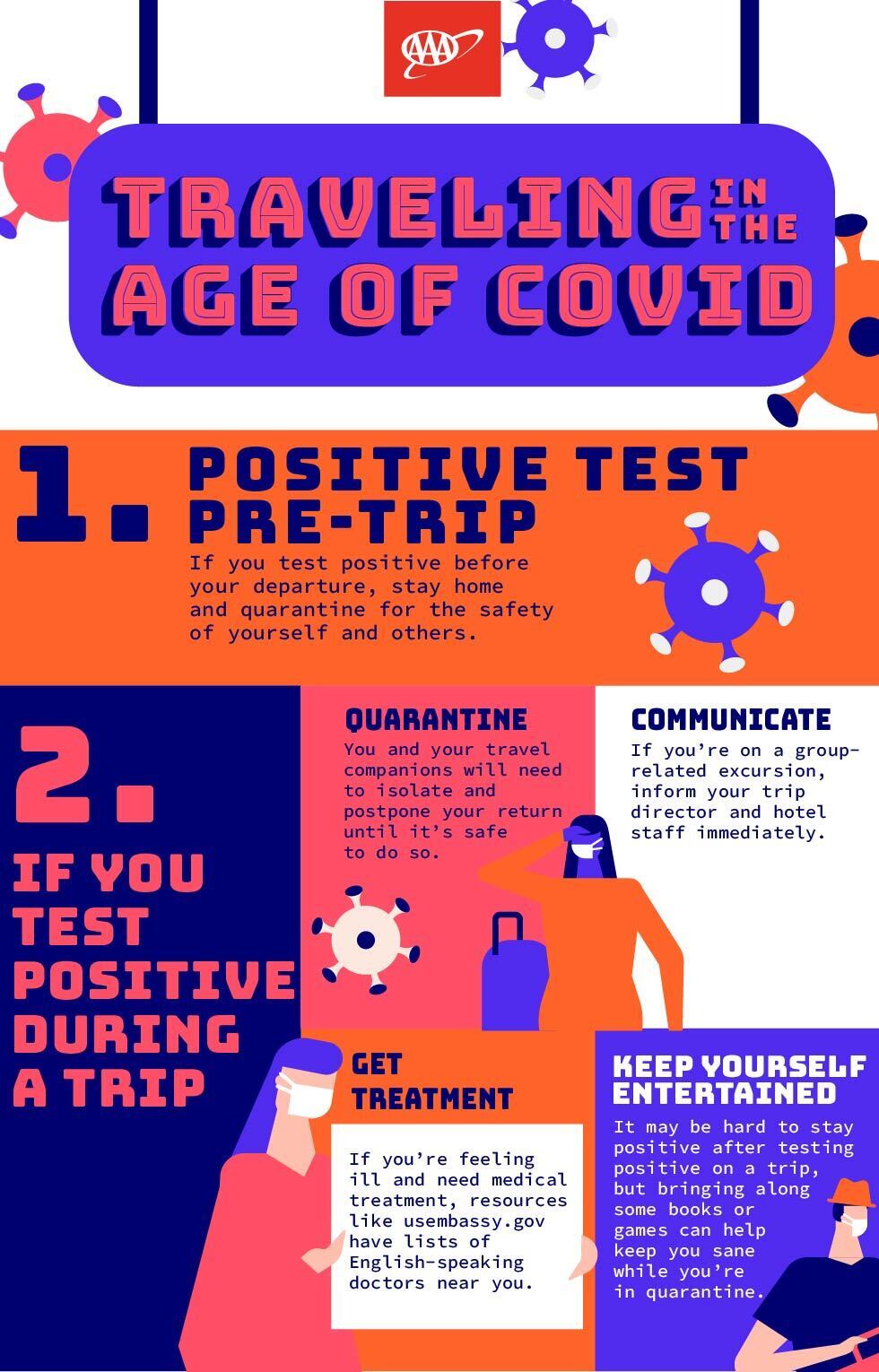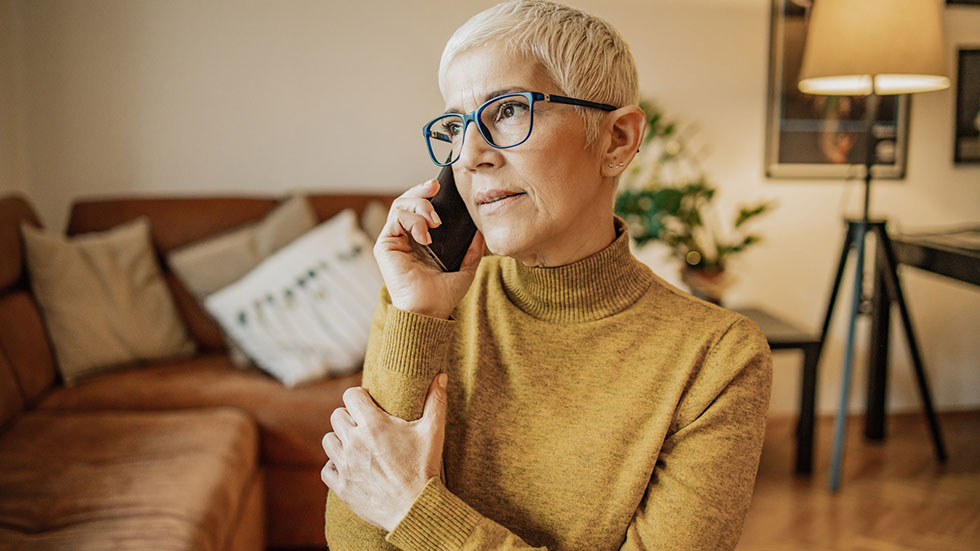What To Do If You Test Positive For Covid Before Or During Travel
WHAT TO KNOW AND DO


If you’re on a trip, or about to leave for one, finding out that your COVID-19 test came back positive leads to changes in your travel plans.
Before traveling, read up on the latest COVID-19 related information from the Centers for Disease Control and Prevention and required health and safety protocols within your upcoming destination.

TESTING POSITIVE BEFORE TRAVELING
If your test comes back with a plus sign before you’re about to depart, it’s best to stay home. “A passenger who tests positive before a trip should not travel,” said Perry Flint, head of corporate communications, USA, for the International Air Transport Association. “That’s both for the traveler’s health and for those who will be exposed to the traveler during the journey.”
Flint also noted that as many countries require proof of a negative COVID test “as a condition of entering the country.”
As of this writing, there are no test requirements for domestic travel by air but in the U.S. federal law currently requires mask wearing on board; non-US carriers can mandate this policy too.
Check with your airline, as your carrier’s policies on changing or canceling your ticket may be based upon certain conditions or your ticket level. Often they post direct information onto their website, such as United and American, along other major carriers. Also contact your hotel or other place of stay as well. Major hotel brands have related protocols for cleanliness and hygiene.
For example, in the event that a guest has a confirmed case of COVID-19, Hilton’s properties follow detailed protocols which include taking appropriate steps to isolate the guest from other guests and hotel team members. After a guest with a confirmed case leaves the hotel, the room they occupied will be taken out of service for thorough sanitization.
It’s also imperative to purchase travel insurance beforehand, as providers have adapted their policies to include coverage relating to COVID-19. Read up before buying a policy to make certain that it not only includes medical assistance but also covers areas such as trip interruptions and your hotel stay.
“You would have to cancel your trip and not travel until you are completely cleared based on the CDC guidelines,” said Amy Short, AAA’s manager of strategic partnerships and online sales, “but having that pre-plan, and understanding your insurance policy, is the first step.”

WHAT TO DO IF YOU’RE TRAVELING
If your test comes back positive while you’re at your destination, CDC guidelines state that “you will need to isolate and postpone your return until it’s safe for you to end isolation. Your travel companions may need to self-quarantine.”
If you happen to test positive while traveling within the U.S., Short recommends turning to your destination’s health departments for guidance. “[They] are a great resource, both for if you don’t know what to do, and you have to shelter in place.”
If you are overseas, you will have to find a place to stay within your destination. Depending upon where you are visiting, you may be required to quarantine within a government-mandated facility or permitted to do so within a hotel. With the latter, check on whether or not you may be able to extend your dates and what payment is required.
A spokesperson for the U.S. State Department advises seeking medical treatment if you feel ill. Contact your nearest U.S. Embassy or Consulate if you need assistance or have questions. Also, the website for the U.S. Embassies often have lists of English-speaking doctors.
If you test positive while on an escorted tour or some group-related excursion such as a cruise, inform your direct point of contact immediately. It is to not only let that person know you need to be cared for, but also to inform and look after other travelers within your group.
“If you're traveling with one of our travel partners or some [similar business], there's almost always a tour director on board with you,” said Short. “So that would be your contact person to make sure that they are aware so that they can start the isolation and contact tracing for the whole group, if need be.”
Cruise companies have their respective protocols. AmaWaterways personnel immediately isolate the guest and their traveling companion within their stateroom, arrange re-testing to verify the initial test results and initiate contact tracing to identify and notify any other guests who were in close contact.

“Contacting the local medical authorities to ensure the guest has access to any needed medical assistance is our first priority,” said Brenda Kyllo, vice president, strategic alliances.
According to Kyllo, guests who have tested positive but don’t require medical attention have local transfers and hotel stays arranged for them to wait out their required isolation before being allowed to return home.
Jeff Roy, executive vice president, revenue management and worldwide operations for Collette, noted that if a customer self-reports about a pre-tour positive test, the tour company’s Member Choice Vacations would work with them to reschedule to a future departure. “There can still be a few things to juggle [like reservations], but we would work with our land and air vendors to attempt to resolve any fees associated with changing or canceling a reservation.”
Roy noted that their domestic and international tour managers are trained to identify those exhibiting symptoms and prioritize the health and well-being of all tour members.
